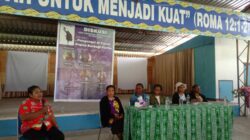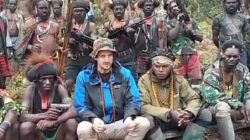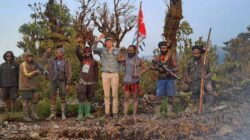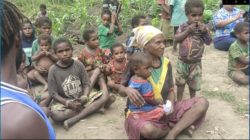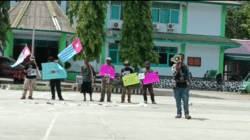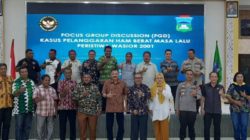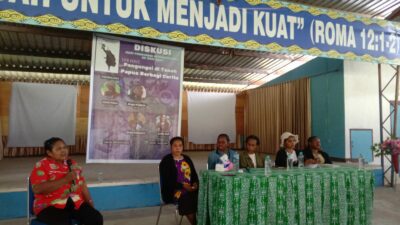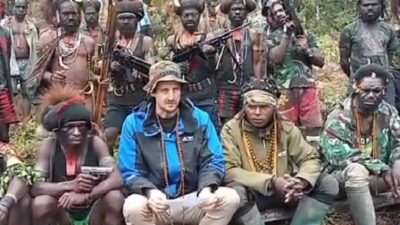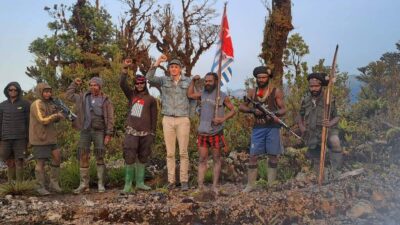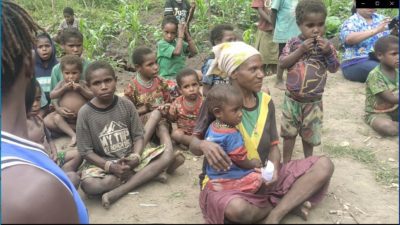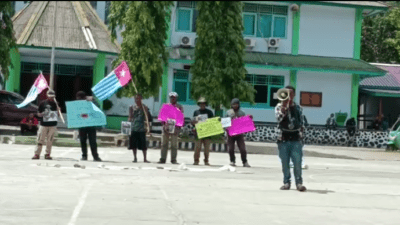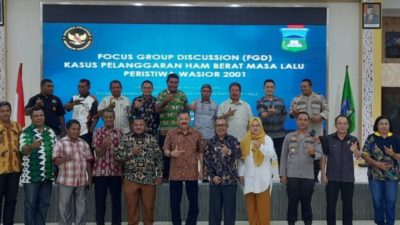
Jayapura, Jubi – Church leaders, human rights defenders, academics and international observers, gathered in Brussels during May 4-7 for the International Consultation on Papua 2015 to discuss the situation of human rights in Papua. These participant of ICP meeting also met in the European Parliament on 5 May 2015 upon the invitation of Ms Ana Gomes, Member of European Parliament, to discuss the current situation in Papua, with the presence of Chargé D’affaires of the Indonesia to the European Union and Indonesian diplomats from Brussels and Jakarta.
“During his visit to Papua in December 2014, President Joko Widodo publicly stated that he was committed to listening to the voices of Papuans, the latest development in Papua suggests a different reality,” Norman Voss, Chair of ICP told Jubi today (7/5/2015)
ICP are concerned with the most recent developments in Papua that have been marked with increased violence committed by the Indonesian security forces against the indigenous Papuans.
The Chairperson of the Evangelical Christian Church in Tanah Papua (GKI TP) Rev. Albert Yoku emphasised, “The situation in Papua deteriorated during the first six months since Joko Widodo assumed presidency.”
On 1 May 2015, 264 Papuans were arrested for commemorating the 52nd anniversary of the administrative transfer of Papua to Indonesia. There were reports of torture of demonstrators, with at least two remaining in detention. Two years ago, on 1 May 2013, at least 30 people were arrested for similar commemorative activities. The particularly repressive response this year represents a deterioration in the situation of freedom of expression and assembly in West Papua.
Until now, ICP concluded Papuans have experienced a demographic shift in which they have become a minority in their own land. This concern has been confirmed by the study of the West Papua Project at the University of Sydney. In the 1970s, the indigenous Papuans made up 70% of the population. But today, the indigenous Papuans only constitute 42% of the population. As a consequence of the demographic shift, the relationships between the indigenous and non-indigenous Papuans are more characterized by tensions, prejudice, discrimination and violence between the communities.
“Papuans also continue experiencing isolation from any engagement with the international community, including international human rights observers, journalists, researchers and humanitarian workers,” said Rev. Albert Yoku.
Having considered these concerns, ICP recommend the following.
To the Government of Indonesia:
– To end the excessive use of force by the Indonesian security forces and to review the security policy in Papua by involving broad participation of civil society at the local and national levels;
– To release all political prisoners without any condition;
– To ensure that impunity for human rights violation including torture does not persist;
– In the context of the demographic shift, to take concrete measures to protect the rights of the indigenous Papuans, including their customary rights over land and natural resources; and to prevent any attempt to promote conflict on the basis of ethnic differences;
– To implement the President’s commitment to neutrality mediated dialogue with Papuans by taking concrete actions, such as holding negotiations with the Papua Peace Negotiators;
To the European Union:
– To highlight the on-going and increasing human rights violations in Papua in the Human Rights Dialogue between EU and Indonesia by supporting the involvement and participation of civil society including Papuan groups;
– To send a human rights fact-finding mission to visit Papua in the near future;
– To urge the Government of Indonesia to end the restriction on practical access to Papua.
(Victor Mambor)



